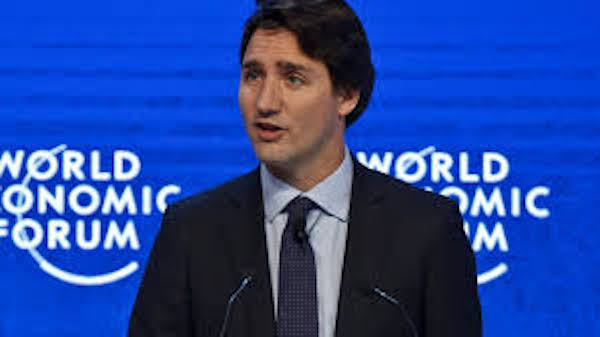International
British political commentator says Trudeau must go. World’s largest political youth organization horrified at Canada.

Canadians have always loved it when the rest of the world talks about our nation. Normally it’s because of an athlete or an artist who is on top of their game. Sometimes it’s our military accomplishments, or our peacekeeping leadership. Currently, Canada is making headlines for all the wrong reasons as the rest of the world struggles to understand what is happening in Canada to protestors who are clearly not violent (even if some find them incredibly annoying).
Best selling author Douglas Murray is a journalist with The Spectator, based in Britain.

Douglas Murray’s latest publication, The Madness of Crowds was a bestseller and ‘book of the year’ for The Times and The Sunday Times. Murray has also contributed to The Wall Street Journal, The Times, The Sunday Times, The Sun, The Evening Standard, and is a regular contributor to National Review. Murray founded the Centre for Social Cohesion, the first British think-tank studying extremism and terrorism.
This week, Douglas Murray was featured in this interview on SkyNews Australia.
Meanwhile in India, Tajinder Pal Singh Bagga, the National Secretary of the world’s largest youth political organization (called Bharatiya Janata Party Youth), has spoken out about the situation in Canada. The parent organization of the youth group, the Bharatiya Janata Party (BJP) is the World’s largest Political Party. Indian Prime Minister Narendra Modi belongs to this political party.
After seeing video from Canadian news organizations, Tajinder Pal Singh Bagga expressed horror at the treatment of peaceful protestors by the Canadian authorities.
I am not able to eat anything from last 24 hours after watching this video. how can @JustinTrudeau attack his own country people. Justin Converted beautiful Canada into Banana Republic. #TrudeauDictatorshipMustGo pic.twitter.com/WWwgMN4OsV
— Tajinder Pal Singh Bagga (@TajinderBagga) February 19, 2022
Censorship Industrial Complex
US Under Secretary of State Slams UK and EU Over Online Speech Regulation, Announces Release of Files on Past Censorship Efforts

Sarah Rogers’ comments draw a new line in the sand between America’s First Amendment and Europe’s tightening grip on online speech.
|
|
Business
Largest fraud in US history? Independent Journalist visits numerous daycare centres with no children, revealing massive scam

A young journalist has uncovered perhaps the largest fraud scheme in US history.
He certainly isn’t a polished reporter with many years of experience, but 23 year old independent journalist Nick Shirley seems to be getting the job done. Shirley has released an incredible video which appears to outline fraud after fraud after fraud in what appears to be a massive taxpayer funded scheme involving up to $9 Billion Dollars.
In one day of traveling around Minneapolis-St. Paul, Shirley appears to uncover over $100 million in fraudulent operations.
🚨 Here is the full 42 minutes of my crew and I exposing Minnesota fraud, this might be my most important work yet. We uncovered over $110,000,000 in ONE day. Like it and share it around like wildfire! Its time to hold these corrupt politicians and fraudsters accountable
We ALL… pic.twitter.com/E3Penx2o7a
— Nick shirley (@nickshirleyy) December 26, 2025
-

 Bruce Dowbiggin2 days ago
Bruce Dowbiggin2 days agoBe Careful What You Wish For In 2026: Mark Carney With A Majority
-

 Business12 hours ago
Business12 hours agoLargest fraud in US history? Independent Journalist visits numerous daycare centres with no children, revealing massive scam
-

 Energy2 days ago
Energy2 days agoNew Poll Shows Ontarians See Oil & Gas as Key to Jobs, Economy, and Trade
-

 Fraser Institute2 days ago
Fraser Institute2 days agoCarney government sowing seeds for corruption in Ottawa
-

 International2 days ago
International2 days agoNo peace on earth for ISIS: Trump orders Christmas strikes after Christian massacres
-

 Business13 hours ago
Business13 hours ago“Magnitude cannot be overstated”: Minnesota aid scam may reach $9 billion
-

 Alberta2 days ago
Alberta2 days agoAlberta Next Panel calls for less Ottawa—and it could pay off
-

 Alberta2 days ago
Alberta2 days agoAlberta project would be “the biggest carbon capture and storage project in the world”




